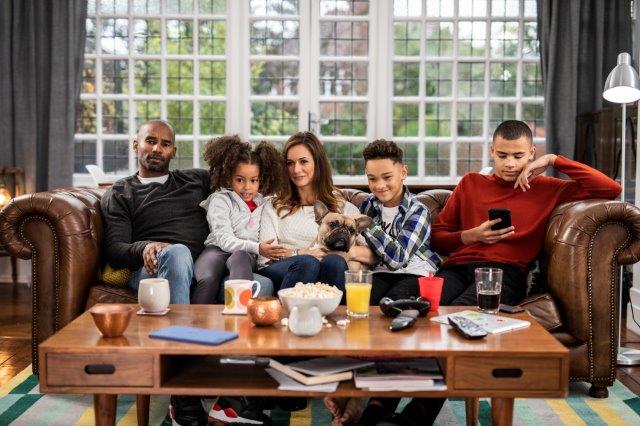BBFC launches new Classification Guidelines
March 19, 2024

The BBFC has published its new Classification Guidelines, informed by its largest-ever public consultation. Throughout 2023, the BBFC spoke to 12,000 people across the UK to explore what matters most to audiences when it comes to classification.
The research found people are now more concerned about depictions of violence on screen in content across all age ratings. The findings demonstrated broad support for how the BBFC currently classifies violence, but audiences expressed concerns about how distressing or disturbing some forms of violence can be. Going forward, a higher rating may be required for violence across all age-rating categories, especially when particularly intense or impactful scenes occur.
The last time the BBFC conducted this research was in 2019. Then, as now, sexual violence was the biggest area of concern for UK audiences. Since 2019, however, suicide and self-harm has risen to the second biggest area of concern – ahead of sex, violence and drugs. People expressed a clear desire to be warned about this type of content, and the BBFC will continue to highlight suicide and self-harm in its content advice.
Although people are largely in agreement with the BBFC’s current approach towards classifying drug content across all age categories, audiences have become more relaxed about cannabis use and solvent misuse than they were in 2019.
The research revealed that people are now slightly more accepting of cannabis misuse at 12A/12, so long as it is not detailed, glamorised or frequent. The BBFC will therefore take a less restrictive approach to such material, but maintain its current standards on other drugs. People also felt the BBFC’s current policy towards classifying solvent misuse was overly cautious, and this finding has been supported by expert advice. Such content will now be treated less restrictively.
People are calling for a more cautious approach to classifying sex scenes at the border of 12A/12 and 15. Participants were concerned by the level of sexual detail, nudity and the duration of the sex scenes rated 12A/12 under the 2019 guidelines. Similar content is now more likely to be rated 15. However, the research also indicates that audiences are happy for classification to be more lenient towards some sex references at the 15/18 borderline, especially in comic contexts.
The research also offers insights into the evolving perspectives and expectations of parents and caregivers, grandparents, educators, and young people.Parents are concerned about the normalisation of bad language, especially terms with sexual or misogynistic connotations. For example, terms such as ‘son of a bitch’, ‘bitch’, ‘dick’. The worry is that young viewers may hear and repeat such language. Language such as this may now require a higher age rating.
Audiences are comfortable with the relaxation of standards across most areas when it comes to trailers, especially in the junior categories (U, PG and 12A/12). For example, in some cases, this may include isolated use of strong language in trailers at 12A/12.
More than eight in ten (81 per cemt) people want a consistent age rating system across cinema, physical media and streaming services. Netflix, which carries BBFC age ratings across its entire UK platform, is now the third most popular source of recognition for BBFC age rating symbols (behind cinema and physical media) and the second most recognised source for content advice (behind cinema).The findings support that the BBFC and its iconic age rating symbols are highly trusted, well recognised and valued by audiences across the UK.
-
99 per cent of respondents recognise at least one BBFC age rating symbol, with 78 per cent recognising them all
-
97 per cent of people see a benefit to age ratings for some or all audiences
-
90 per cent of parents/caregivers (a 7 per cent increase in the last five years), 91 per cent of teachers, and 88 per cent of teens aged 16-19 trust BBFC age ratings all or most of the time
-
87 per cent of parents/caregivers agree with BBFC age ratings all or most of the time
-
85 per cent of respondents trust BBFC age ratings to accurately reflect the nature of the content they consume
To help parents facilitate important conversations and help increase awareness, the BBFC has created a collection of BBFC Guides that focus on various classification areas such as discrimination, drugs, and sex. Each bite-sized guide provides an overview of how the BBFC classifies different issues, what they mean at each age rating, and a collection of film case studies.
